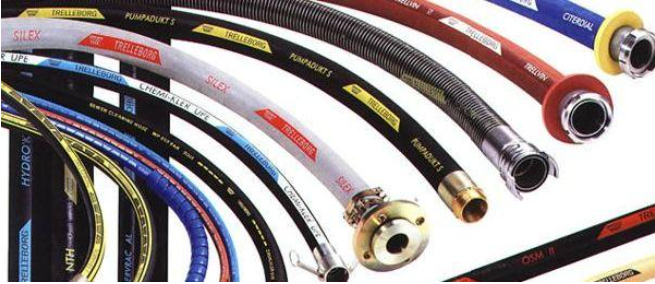Industrial hoses play a vital role in a variety of applications, from conveying fluids in manufacturing processes to transporting materials in construction and mining operations. However, the service life of industrial hoses is a key consideration to ensure safety, reliability, and cost-effectiveness. One of the key factors that determines the service life of industrial hoses is the type of rubber material used in its manufacturing. In this article, we will explore the service life of industrial hoses and the role of different rubber materials, including nitrile rubber (NBR/BUNA), hydrogenated nitrile rubber (HNBR), ethylene propylene diene monomer (EPDM), silicone rubber (SI), and fluororubber (FPM/FK).

Nitrile rubber (NBR/BUNA) is a popular material used in industrial hoses due to its excellent resistance to oils, fuels and other petroleum-based fluids. NBR hoses typically have a service life of 2-5 years, making them suitable for applications where exposure to hydrocarbons is expected. However, specific operating conditions and environmental factors must be considered that may affect the service life of NBR hoses.
Hydrogenated Nitrile Rubber (HNBR) is a modified form of NBR with enhanced heat and chemical resistance. HNBR hoses are able to withstand more severe operating conditions and have a service life of -5 years. These hoses are often used in high temperature applications and environments where exposure to corrosive chemicals is a concern.
Ethylene Propylene Diene Monomer (EPDM) is known for its excellent resistance to weathering, ozone and UV radiation. EPDM hoses typically have a service life of 2-5 years, making them ideal for outdoor applications and situations where prolonged exposure to the elements is expected.
Silicone rubber (SI) is valued for its wide temperature range, flexibility and aging resistance. Silicone hoses have a service life of 3-5 years and are often used in high-temperature applications, such as in the automotive and aerospace industries, as well as medical and food processing equipment.
Fluoroelastomer (FPM/FK) has excellent resistance to a wide range of chemicals and fuels, as well as high temperatures. FPM hoses have a service life of 3-5 years and are typically used in applications that require exposure to corrosive chemicals and extreme temperatures, such as in the chemical processing and petrochemical industries.
In summary, the service life of an industrial hose is closely related to the type of rubber material used in its manufacturing process. By understanding the characteristics and service life of different rubber materials, manufacturers and end users can make informed decisions when selecting a hose for a specific application. It is important to consider factors such as operating conditions, environmental exposure, and the compatibility of the rubber material with the conveyed fluid to ensure optimal performance and service life of the industrial hose.
Post time: Jan-15-2025
